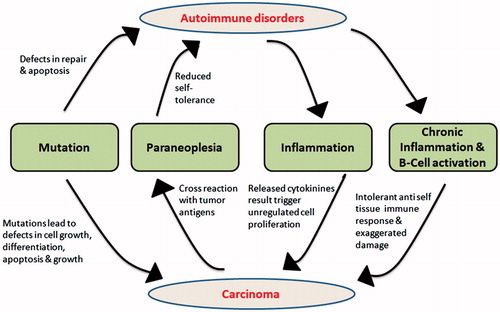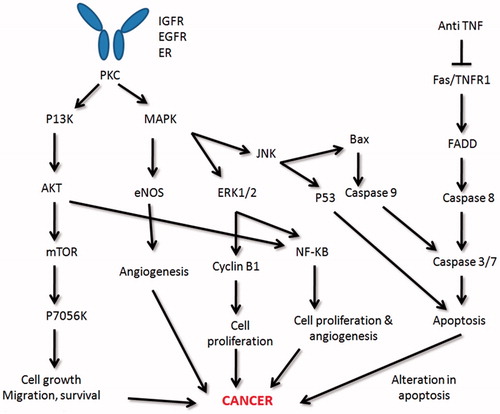Figures & data
Figure 1. Autoimmune disorders and its interconnection with carcinogenesis in a cyclic pattern. Mutations in growth regulators, apoptotic proteins lead to both autoimmune disorder and cancer directly or indirectly. Autoimmune disorders caused due to deregulation of cell division proteins lead to inflammation, T-cell activation and B-cell activation which results in intolerance to self-tissues, i.e. immune responses are directed towards self-tissues which ultimately lead to cancer.

Figure 2. Stimulation of various membrane receptors by TNF, EGF, IGF leads to phosphorylation of protein kinase C which mediates the signal to the interior of the cell and activates MAPK and PI3-K dependent pathways. These pathways, in turn, regulate various cellular processes like cellular differentiation, cell division and apoptosis. Apoptosis is induced synergistically via both p53 dependent and caspase-dependent mechanisms. Deregulation in any signalling molecule or a mutation in the gene encoding these molecules of MAPK and PI3K pathways and apoptosis signalling leads to cellular transformation.

Table 1. Putative hotspots for therapeutically targeting autoimmune diseases and cancer.
Table 2. The association of different autoimmune diseases with the symptoms of cancer and the reason the development of malignancy.
